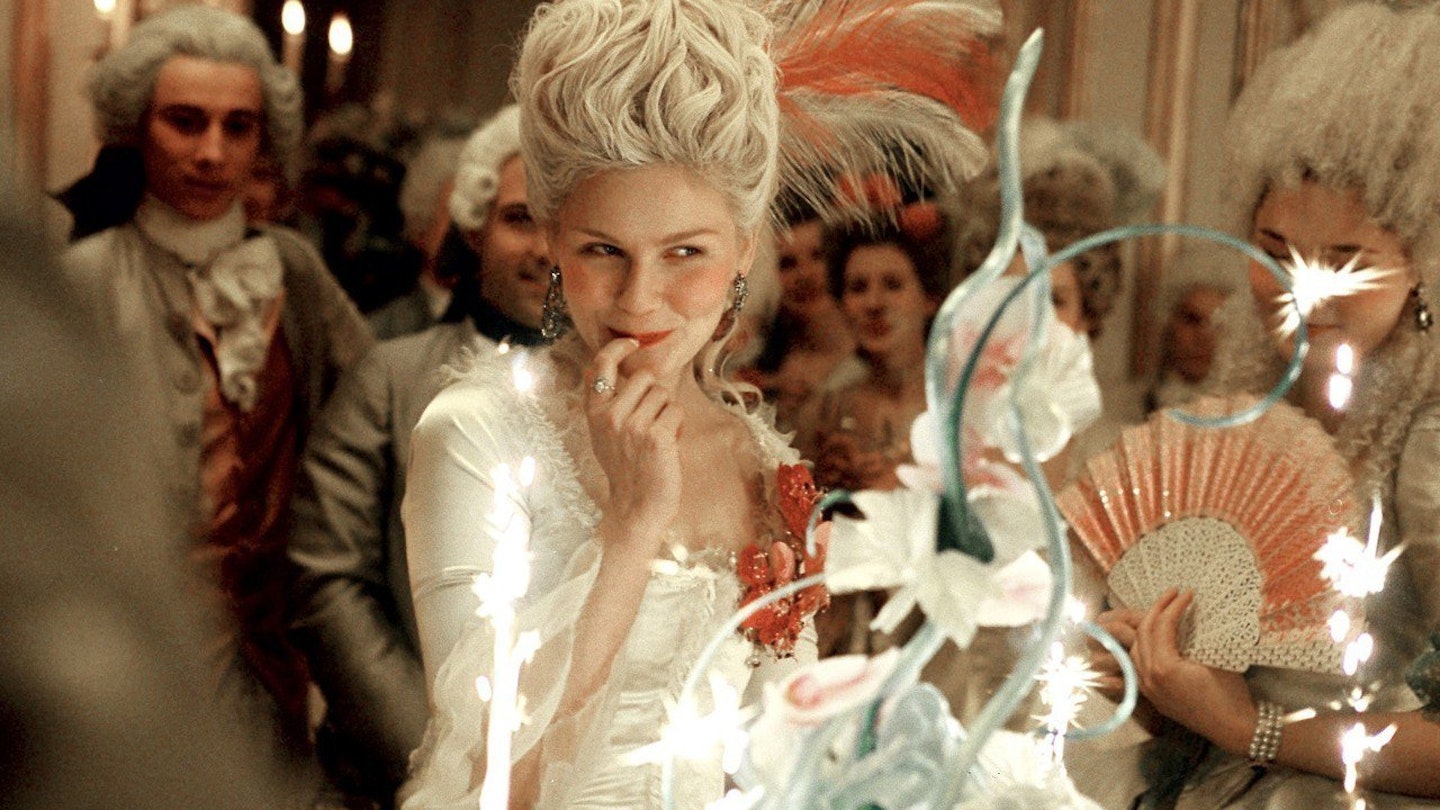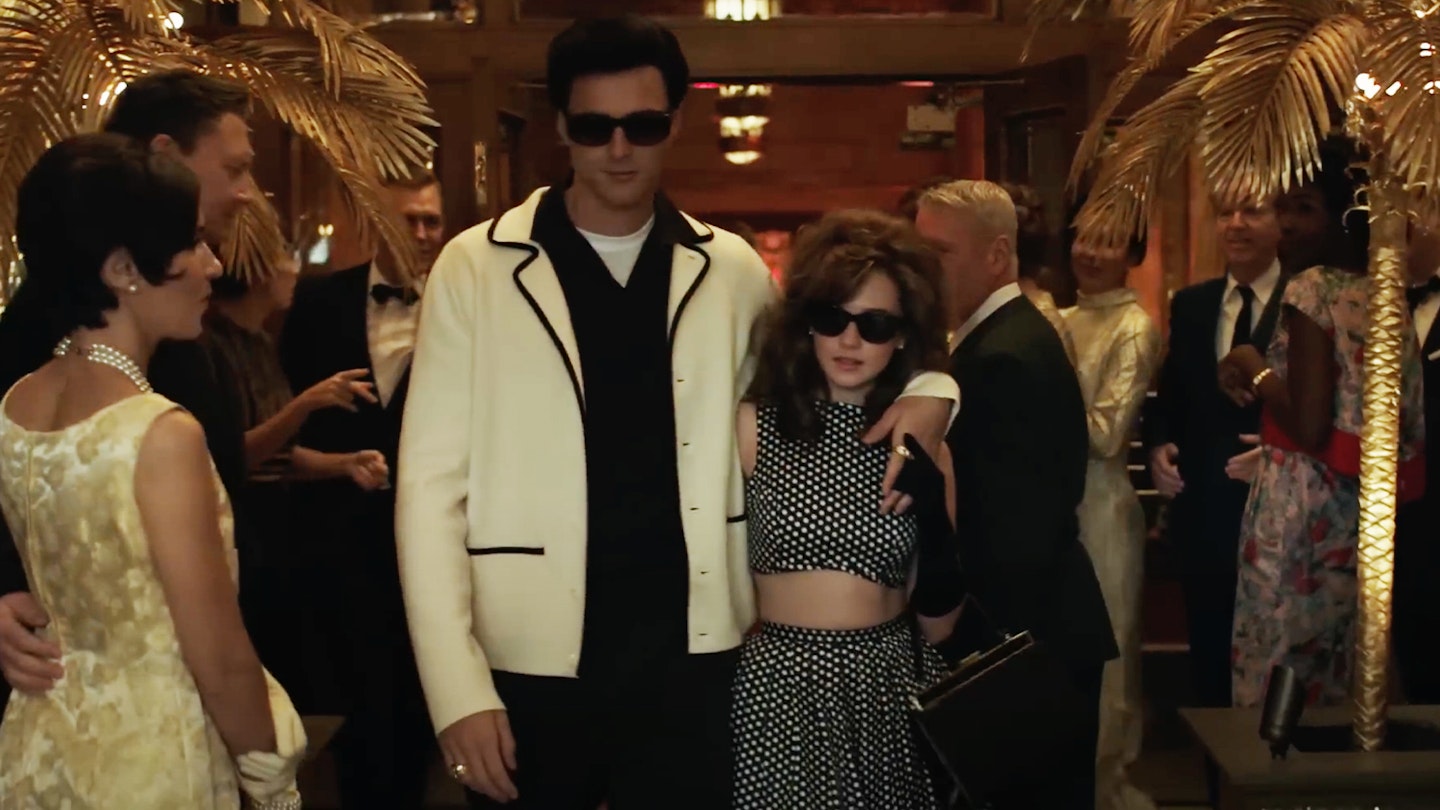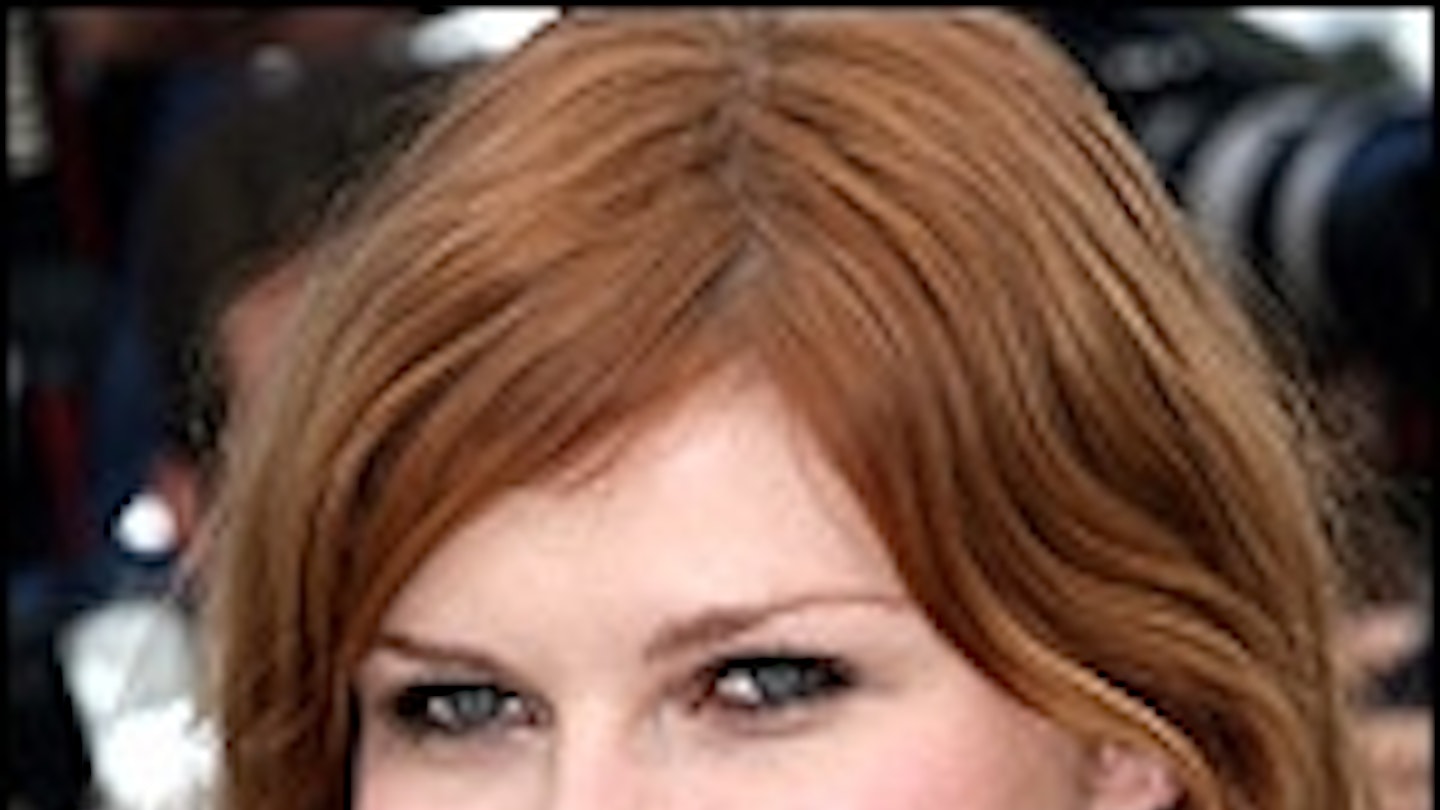Gore Vidal, author, critic and smartarse, once opined, “The French have a remarkable capacity for getting things wrong.” To wit, the Cannes screening of Marie Antoinette. Booed with a gusto familiar to Cristiano Ronaldo, Sofia Coppola’s follow-up to Lost In Translation was vilified for being historically misguided, emotionally empty and wildly indulgent. While debatably guilty on all three counts, this is only a fraction of the story, for Marie Antoinette is a hedonistic riot of spirited, capricious filmmaking; a sexy, witty, dynamic romp, fired by more imagination than a thousand Merchant Ivorys and propelled by the best soundtrack of the year.
Giving the finger to period-drama conventions, Coppola re-spins Marie’s young life as an exuberant teen flick (Cleauless?) full of cliques, bitchery and gossip. As Marie pops pastries, vogues around Versailles and generally parties like it’s 1779, Coppola mounts the ultimate chick flick, a love letter to cake, Moët, pajama parties, and rampant romps with sexy Swedish beefcake (set perfectly to Adam And The Ants). For an hour or so, it is a terrific sugar-rush, playing fast and loose with time-frames (keep ’em peeled for a pair of pink Converse), factual accuracy (were there ever any Swedish beefcakes?) and never wallowing in its beautifully realised opulence.
Ignoring the internal power-plays and external unrest building in France, Coppola continues her exploration of young female protagonists trying to find themselves in cocooned worlds. Kirsten Dunst gives the film an assured centre, lost in transition between adolescence and adulthood, tangibly evoking the sense of being trapped in a world of regal ritual and stifling etiquette. Coppola surrounds her with a cast as protean as her approach: Jason Schwartzman gets good moments as the sexually disinterested Dauphin, Asia Argento amps it up as an über-bitch, and the likes of Rip Torn, Danny Huston and Steve Coogan give good support.
Yet the beheaded airhead’s plight is not as moving as it might be. Save the story strand involving the growing demands on her to produce an heir, there is little plot to speak of and thus nothing obvious to get involved with. But Coppola’s M. O. offers different pleasures. From the beautifully staged opening as Marie arrives at the French border in a gilded coach and is stripped naked to remove herself of everything Austrian, her experience is mounted in visual vignettes, matching 18th century aristo antics to the decadence of post-punk anthems. Soundtracking Marie’s life to the likes of New Order and The Cure — best of the bunch is a court minuet played out to Siouxsie And The Banshees’ Hong Kong Garden — opens Coppola up to accusations of pop-video pictorialism, but that is to miss the heady, joyous experience the gambit delivers.
It is only when history crashes Antoinette’s shindig that the movie begins to falter. Once Marie finally settles into motherhood and the arrival of the baying mob brings down her luxuriant lifestyle, Coppola can’t muster the interest or cinematic brio that marked the first half. What would turn Marie Antoinette from a really good flick into a great one is if Coppola could imbue her sensual delights with something to say about the relationship between privilege and superficiality, or really get inside the head and heart of her young protagonist. But perhaps such carping puts too much weight onto her intentions. After all, you can’t fault a chocolate cake for not being a five-course meal.



